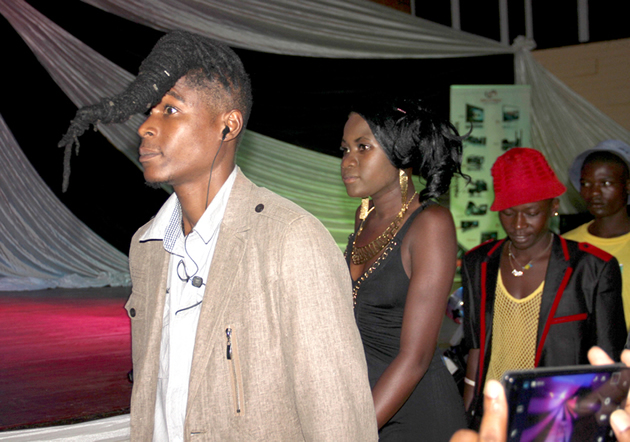
The Sunday Mail

 Mtandazo Dube Unplugged
Mtandazo Dube Unplugged
After endless debates in bars, restaurants, buses, workplaces, on radio and in newspaper articles, top promoters in the country set out over the past few weeks to establish which genre currently rules the roost on the market.
First, it was the reigning promoter of the year, Biggie Chinoperekwei of Divine Assignments, who put up a two-day festival at the Harare Gardens a few weeks ago, starting with a Zim dancehall fiesta on Saturday April 5, followed by a family show featuring gospel and sungura artistes the next day.
Both rough assessments and the actual figures confirmed that the gospel-sungura family show dubbed Dr Nero Commemoration was outclassed in terms of attendance by the Zim dancehall concert held the previous day, which was a public engagement party for Soul Jah Love and Bounty Lisa.
The promoter, Chinoperekwei, confirmed that in terms of advertising, he did the same for both the Dr Nero and the Soul Jah Love-Bounty Lisa show – but Zim dancehall was simply ahead.
“In percentage terms, the family show, which had Pastor Charles Charamba and wife Olivia, Alick Macheso, the Chimbetus (Suluman, Tryson, Douglas and Allan), Progress Chipfumo, Kapfupi and many other smaller groups – attracted half the crowd that came for the Zim dancehall show,” said Chinoperekwei.
He added that he was amazed by the beer sales as well.
“After constantly hearing that the crowd that attends dancehall shows does not buy drinks, I just focused on the gate-takings.
But the figures that came through after the show were shocking – the sungura guys did not even come close.”
But that was just one test.
A second one was to be conducted last weekend by Partson Chimbodza of Chipaz Promotions as part of his company’s 10th year anniversary celebrations.
Chimbodza’s event was a three-day festival, featuring sungura on Friday night, Zim dancehall on Saturday and gospel on Sunday.
Chimbodza said: “I can safely say that for every one sungura fan, there were four dancehall fans – dancehall attendance was superb.”
He was quick, though, to denounce the rowdy behaviour of dancehall fans, saying promoters needed to quickly stamp their authority.
The rowdiness of the fans takes away some of the gloss from the dancehall genre.
As if the two festivals by Chinoperekwei and Chimbodza were not enough, the Zim dancehall artistes went on to prove that they are, indeed, a force to reckon with when Kinnah, Shinso and Winky D made appearances at the Harare International Conference Centre (HICC) where they brought the house down with their brief performances during Jah Prayzah’s album launch.
There is no doubt that sungura is still a popular genre, played by a number of serious artistes: seasoned and new.
However, critics are asking whether the appeal of the genre died with the passing of one of the genre’s finest exponents, Tongai “Dhewa” Moyo.
They argue that Dhewa used to give nimble-footed guitarist Alick Macheso good competition and that was the reason why Macheso always strove to produce high-quality recordings.
Macheso and Dhewa battled for awards, for crowds, for women and for general recognition, to the extent that the two hardly shared the same stage. And when they did share the same stage in clashes, it was like watching soccer giants Caps United play against bitter rivals Dynamos – the attendance was always impressive.
So lucrative were their “clash” ventures that even the artistes would demand double their normal fees or more, from the promoter, if it was not a show they had organised themselves.
The rivalry was to remain like that until the very last days, when the two toured the country, in shows that helped Dhewa fundraise for his medical expenses.
So bad was the rivalry that most music fans thought that Macheso would not attend Dhewa’s funeral.
When he showed up and openly wept, some said they were crocodile tears and accused Macheso of playing to the gallery.
But now it makes sense, Macheso cried because he understood the extent of the tragedy that had befallen the country – his competition was gone, creativity was gone.
Macheso knew that all others were either his copycats or Dhewa’s.
He knew that nothing new was going to come out of the crop that surrounded him – the only real artiste had gone just as Simon Chimbetu the creator of dendera music had gone, just as Leonard Dembo, whose beat Dhewa took, modified and personalised, had gone.
In this industry, where the sons of late musicians are now the artistes people look forward to for new products – no originality exists anymore.
Even in gospel, the producers in cahoots with the singers regurgitate beats and tunes – case in point being the Charles Charamba-Trymore Bande debacle, where Charamba ended up having Bande arrested for plagiarising his work.
Or the Blessing Shumba and Mathias Mhere case which has seen the two artistes try in vain to find different producers, players of instruments and recording studios in a bid to try and be different from one another.
Suluman Chimbetu and Macheso have of late tried to recreate the sungura rivalry for a better pay day but that has not yielded the desired results, it just isn’t the same.
So, as the nation unites this October for the third time to commemorate the life of Murozvi Mukuru, Mopawo Mukonzi, Father Flower – that son of Zhombe, the man who was proud of his roots and refused the allure of the bright lights of Harare – Let us remember that his untimely death cost the Zimbabwean music industry dearly.
Particularly, sungura.
Will sungura rise again?
- Feedback: [email protected], phone 04-795771 ext 1374, Twitter @MtandazoDube or Facebook



